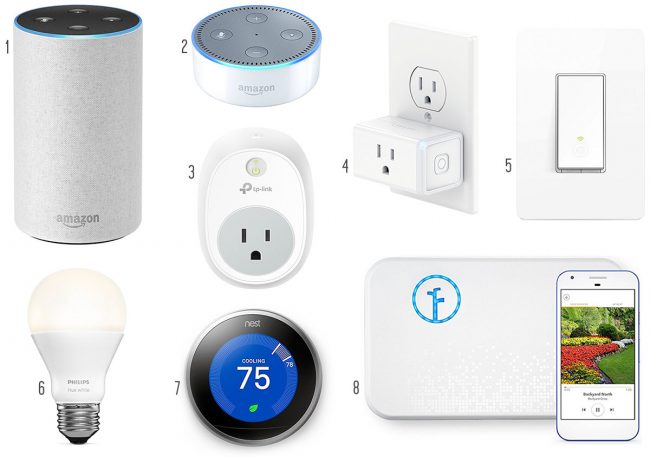Pulse of Information
Stay updated with the latest news and insights.
Are Smart Homes Really Smarter Than Us?
Discover whether smart homes are truly smarter than us or just clever illusions. Uncover the truth in our latest blog post!
The Rise of Smart Homes: Are We Losing Control?
The concept of smart homes has rapidly evolved, integrating advanced technologies to automate and enhance our living environments. From voice-activated devices to automated lighting, these innovations promise unparalleled convenience. However, as we adopt these technologies, questions arise about our diminishing control over our personal spaces. Are we sacrificing privacy for the sake of comfort? Smart homes often rely on data collection, raising concerns regarding who has access to this information and how it is utilized.
Moreover, the interconnectivity that defines smart homes can lead to vulnerabilities. A single breach in the network can compromise multiple devices, putting personal security at risk. As homeowners, we must critically evaluate whether the benefits of automation outweigh the potential risks of losing control. Understanding the implications of our dependence on technology is essential; we must implement safeguards while embracing the digital age to ensure our homes remain a sanctuary rather than a source of anxiety.

Smart Homes vs. Human Intuition: Who Makes Better Decisions?
In today's technologically advanced world, the concept of smart homes has revolutionized the way we interact with our living spaces. These homes are equipped with an array of devices that utilize artificial intelligence to optimize everything from energy usage to security systems. For instance, smart thermostats can learn a family's routine to adjust temperatures automatically, while automated lighting can respond to the time of day or occupancy, promoting both convenience and energy efficiency. However, as efficient as these systems may be, their reliance on data algorithms raises the question: can machines truly make decisions that align with human preferences and emotional needs?
On the other hand, human intuition plays a crucial role in decision-making, particularly in unpredictable situations. Humans possess the ability to assess complex emotional and social dynamics, offering insights that a smart system may overlook. For example, when deciding to open the window on a cool evening, one might consider not only temperature but also the ambiance of the neighborhood or the feeling of fresh air versus comfort. Additionally, decisions about home layout, decor, and personal space are often influenced by unique human experiences rather than quantifiable data. Ultimately, while smart homes provide unparalleled efficiency, the nuanced understanding and empathy displayed through human intuition make it indispensable in the decision-making process.
Understanding Smart Home Technology: A Blessing or a Burden?
Smart home technology has emerged as a revolutionary force in modern living, promising unparalleled convenience and enhanced security. With devices ranging from smart speakers and thermostats to security cameras and lighting systems, homeowners can enjoy the ability to control their environments with just a click or voice command. This integration of technology into our daily lives not only streamlines routines but also contributes to energy efficiency, making it a significant step towards sustainable living. However, with these advancements come concerns about privacy and the potential for technology to become overly intrusive, raising the question: is smart home technology a blessing or a burden?
On one hand, the benefits of smart home technology are hard to ignore. It offers a level of automation that can simplify tasks, save time, and provide users with peace of mind. For example, smart security systems can alert homeowners to potential breaches in real-time, while smart thermostats can learn preferences and adjust temperatures accordingly, reducing energy bills. On the other hand, the burden of managing numerous devices, ensuring security against hacking, and the reliance on technology can lead to a sense of overwhelm. As convenience becomes a priority, it's essential for consumers to weigh both sides carefully to determine if the convenience truly outweighs the potential pitfalls of a more interconnected lifestyle.